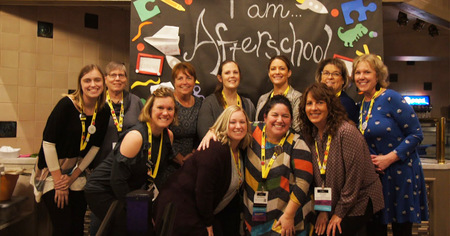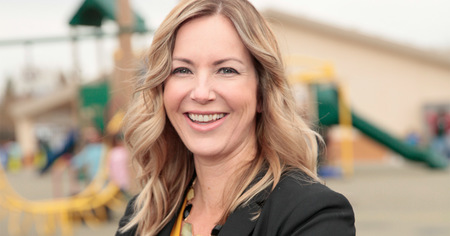Communication would become difficult and there would probably be quite a few misunderstandings. If there were translators, or if everyone were able to speak to each other in a way they understood, then communication would flourish.
In my experience, when it comes to working with people, I've found that everyone communicates differently, and one message may not be understood the same way by all. Expecting what you say to be understood the same way, by everyone at the same time, is quite the long shot. We tend to forget this, especially with children. We give out directions to the majority, but sometimes have those kids that we feel need constant reminders. I've learned that maybe we aren't talking to them in a way they understand, so by getting to know them and understanding how they learn and speak themselves, we're able to create a good communicative relationship.
Certain behaviors may arise when children don't fully understand what's expected of them because someone hasn't taken the time to get to know them the way they need to. Some children may require more effort when communicating, to get a clear message conveyed to them. This requires patience, empathy, effort and hope to be able to see the light at the end of the tunnel. If you're a good communicator and take the time to ensure everyone is on the same page, you'll have less issues with misunderstandings.
Being able to communicate to children—and knowing how they communicate back—is key to developing relationships, gaining trust and being able to help change behaviors that have been negatively impacting your program. You'll likely make a breakthrough with those children who simply needed that extra minute of your time to show them you care. Children might have things happening in their lives, at home or elsewhere, that cause them to reach out for someone for understanding. Many times, this tends to emerge through behavior issues that afterschool professionals need to identify as a clue to build better communication.
I've had the opportunity to have a breakthrough with someone when I was working as a camp supervisor. There was a child who was new to camp and had a bit of a rough start. When some of the counselors were trying to talk to him, he would act unapproachable by screaming at them and crying. The counselors asked me if I would like to talk to him, so I went over and sat beside him quietly. He looked over at me, then looked back. I asked him if he was OK, to which he replied, "No!" and screamed that he hated everything and didn't want to come back to camp. I asked what happened for him to be sad and angry and he said his dad forgot his snack.
At this point, I'm trying to connect with him, so I ask another question that digs a little deeper. I asked him if that was the only reason he was upset. He told me that he was really upset because his parents had gotten a divorce and he was really hurt and sad they weren't ever going to be able to live with him together again. I told him it was all right for him to be sad, and that maybe we could find him some kids to talk to that maybe are going through, or have gone through, what he's going through. I reminded him that camp could be fun—if he gives it a chance—and that I would be there if he ever needed someone to talk to. Then, I asked if he wanted a hug. He had stopped crying and gave me a hug. The next day, he was smiling and happy. I asked if he was OK and he said he was doing a lot better.
Changing the way we communicate helps solve the problem of being repetitive with no results. Getting to know the people and children we work with takes patience and being able to relate to certain content in their lives. Be willing to take that extra time others may need to build trust, improve behaviors, develop understanding, build better relationships, and reform children who are able to express themselves in healthier ways. It takes reassurance for us to continue and push on, and sometimes there won't be a quick turnaround. If one way of communicating isn't working, try another way. Don't give up! Be creative.
Proper communication is truly the key element to being able to work with children and adults alike. That extra minute we might need to say something to someone in a way they understand truly allows for more positive results and less stress. We are setting examples for these children every day and when they see people going above and beyond to care for them, that kind of positive experience could have a lifelong impact.
Krista Caldwell, NAA Executive Member, is the Team Building Coordinator for the Rapid City YMCA and has been involved with the organization for over 20 years, starting as a camper. She has worked with children ages 1 – 12 for 13 years and has been a camp counselor, preschool aide, and lead teacher, and plans to take on more advancement opportunities in the future. Krista, who attributes her many talents, knowledge, experience, and passion of working with children to the Y, loves to be active and enjoys spending time with her friends and family.




